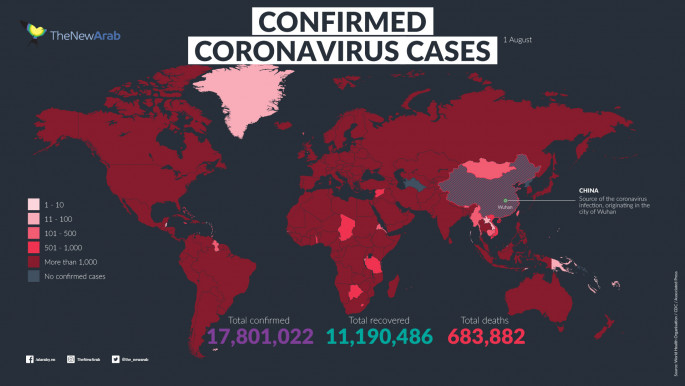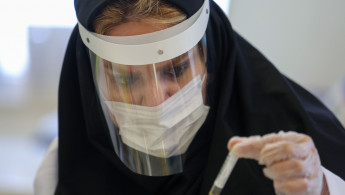Afghan refugee doctor in Iran helps migrants fight coronavirus as country battles new wave
A refugee doctor in Iran is working hard to treat other refugees with coronavirus.
3 min read
The refugee doctor treats other refugees [Getty, stock image of doctor in Iran]
A female Afghan doctor in Iran is being praised by the UN’s Refugee Agency (UNHCR) for the crucial work she is doing in Iran treating refugees amid a growing coronavirus crisis.
Dr Fezzeh Hosseini is a 38-year-old refugee from Afghanistan who was recently appointed to head up the coronavirus public outreach program in the Islamic Republic’s central Esfahan province.
Working as head physician at the Razi Health Care Centre in Khomenei-Shahr, she provides phone consultations to Iranian and Afghan patients suffering from or at risk of contracting Covid-19.
“The coronavirus made me feel powerless, like other doctors around the world,” she says.
“These phone calls became an invaluable way for me to reach out to people stuck at home who may need medical advice and services.”
Covid-19 is a growing problem in Iran.
Earlier this week, the country reported a new single-day record death toll of 229 from the virus, after weeks of rising numbers in the Middle East’s worst-hit country.
"Sadly, we lost 229 of our compatriots to the Covid-19 infection in the past 24 hours," Health Ministry Spokeswoman Sima Sadat Lari said at the time.
"This raises the overall toll to 14,634," she said in televised remarks.
Iran announced its previous record Covid-19 death toll of 221 on July 9.
“In Iran, people are tired of the coronavirus and, unfortunately, not enough people maintain health precautions and social distancing.
“But all those we call, especially in the Afghan community, would listen to our advice because it was coming from Dr Hosseini,” said Ameneh, 30, an Iranian midwife working in Fezzeh’s team.
Following extensive study in the Islamic Republic, Dr Hosseini was finally given the chance to practise in 2016.
|
She became the first and only refugee doctor in Esfahan province, home to some five million inhabitants, including 100,000 refugees.
“Sometimes, my Afghan patients are surprised when they find out that I am also from Afghanistan.
"It is as if they have forgotten that they too can succeed,” she said.
Dr Hosseini, along with half a dozen medical staff treat nearly 10,000 Iranian and Afghan patients per month.
Since the outbreak of Covid-19, they have been screening, testing and treating patients for the virus and referring more serious cases to provincial hospitals.
Access to healthcare
Refugees in Iran have access to free primary healthcare and they have been able to get the same Covid-related tests and treatment as Iranian nationals, UNHCR reports.
Despite initially having access to healthcare, refugee communities have been hard hit by the economic fallout caused by the pandemic.
“An increasing number of women over the last months have told me that they are experiencing more and more domestic conflicts, due to increased stress as a result of the loss of livelihoods to Covid,” Dr Hosseini said.
“Being an Afghan like my patients, they feel they can open up to me as we share the same culture and experiences,” she added.
“But what makes me most proud, is that people see me as someone who can help them, not just as a refugee."
 |





 Follow the Middle East's top stories in English at The New Arab on Google News
Follow the Middle East's top stories in English at The New Arab on Google News
![Netanyahu furiously denounced the ICC [Getty]](/sites/default/files/styles/image_330x185/public/2024-11/GettyImages-2169352575.jpg?h=199d8c1f&itok=-vRiruf5)
![Both Hamas and the Palestinian Authority welcomed the ICC arrest warrants [Getty]](/sites/default/files/styles/image_330x185/public/2024-11/GettyImages-2178351173.jpg?h=199d8c1f&itok=TV858iVg)
